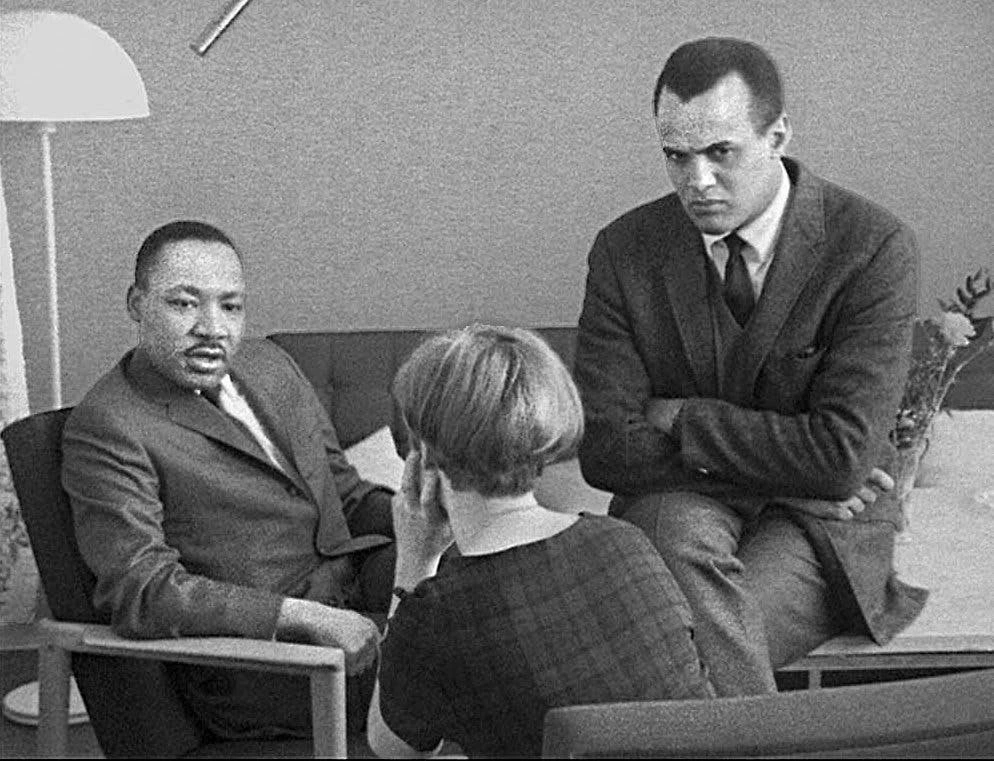
#art #politics #activist #singer #actor #legend #black-liberation #freedom #usa #rip
Harry Belafonte, the singer, actor and civil rights activist who broke down racial barriers, has died aged 96. RIP
Harry Belafonte Reflects on Life as a Singer, Actor and Activist
Harold George Bellanfanti, Jr .Harry Belafonte (born March 1, 1927) is an American singer, songwriter, actor, and social activist. One of the most successful African-American pop stars in history, he was dubbed the "King of Calypso" for popularizing the Caribbean musical style (Originating in Trinidad & Tobago) with an international audience in the 1950s. His breakthrough album Calypso (1956) is the first million-selling LP by a single artist.Belafonte is perhaps best known for singing "The Banana Boat Song", with its signature lyric "Day-O". He has recorded in many genres, including blues, folk, gospel, show tunes, and American standards. He has also starred in several films, most notably in Otto Preminger's hit musical Carmen Jones (1954), Island in the Sun (1957), and Robert Wise's Odds Against Tomorrow (1959).
Belafonte was an early supporter of the Civil Rights Movement in the 1950s and 1960s, and one of Martin Luther King, Jr.'s confidants. Throughout his career, he has been an advocate for political and humanitarian causes, such as the anti-apartheid movement and USA for Africa. Since 1987, he has been a UNICEF Goodwill Ambassador. In recent years, he has been a vocal critic of the policies of both the George W. Bush and Barack Obama presidential administrations. Harry Belafonte now acts as the American Civil Liberties Union celebrity ambassador for juvenile justice issues.
Belafonte has won three Grammy Awards, including a Grammy Lifetime Achievement Award, an Emmy Award, and a Tony Award. In 1989, he received the Kennedy Center Honors. He was awarded the National Medal of Arts in 1994. In 2014, he received the Jean Hersholt Humanitarian Award at the Academy's 6th Annual Governors Awards. In March 2014, he was awarded an honorary doctorate from Berklee College of Music in Boston.
Belafonte was born Harold George Bellanfanti, Jr. at Lying-in Hospital on March 1, 1927, in Harlem, New York, the son of Melvine (née Love), a housekeeper of Jamaican descent, and Harold George Bellanfanti, Sr., a Martiniquan who worked as a chef. His mother was born in Jamaica, the child of a Scottish white mother and a black father. His father also was born in Jamaica, the child of a black mother and Dutch Jewish father of Sephardi origins. Belafonte has described his grandfather, whom he never met, as “a white Dutch Jew who drifted over to the islands after chasing gold and diamonds, with no luck at all”. From 1932 to 1940, he lived with one of his grandmothers in her native country of Jamaica. When he returned to New York City, he attended George Washington High School after which he joined the Navy and served during World War II.[9] In the 1940s, he was working as a janitor's assistant in NYC when a tenant gave him, as a gratuity, two tickets to see the American Negro Theater. He fell in love with the art form and also met Sidney Poitier. The financially struggling pair regularly purchased a single seat to local plays, trading places in between acts, after informing the other about the progression of the play. At the end of the 1940s, he took classes in acting at the Dramatic Workshop of The New School in New York with the influential German director Erwin Piscator alongside Marlon Brando, Tony Curtis, Walter Matthau, Bea Arthur, and Sidney Poitier, while performing with the American Negro Theatre. He subsequently received a Tony Award for his participation in the Broadway revue John Murray Anderson's Almanac.

There are no comments yet.